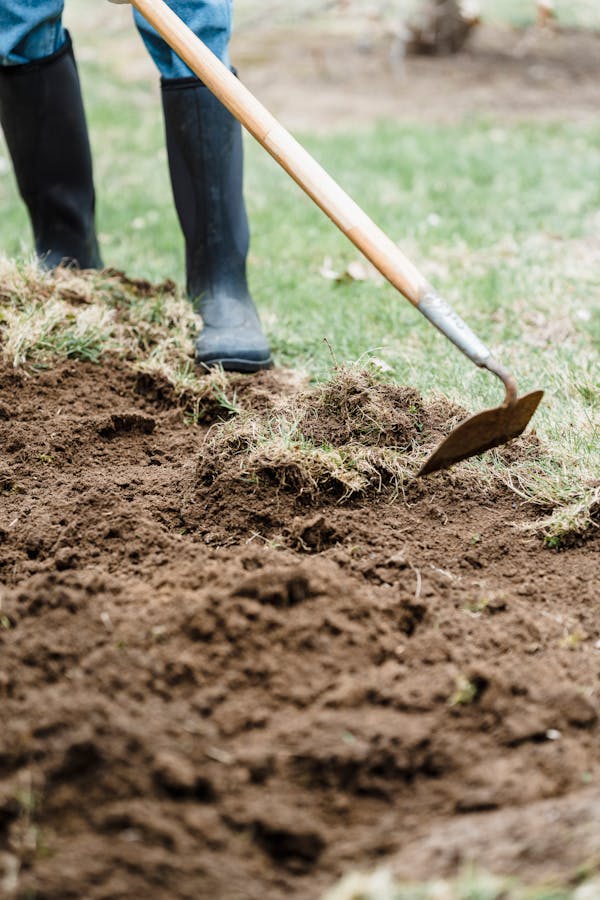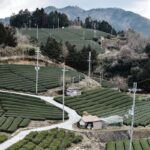
Rural King Farms And Development In Rural America

Over the years, Rural King has shaped agriculture and farming practices across America. Agriculture itself has played a big part in forming the country’s rural landscape. Rural Farms stands out as a well-known agricultural company committed to sustainable farming and rural development. Let’s take a look at the history of Rural Farms and its influence on rural America.
The Origin of Rural King Farms
A group of farmers founded Rural King Farms in 1960, sharing a vision for sustainable agriculture and rural growth. It started as a small family-run farm, but didn’t stay small for long. The operation quickly grew into a multi-faceted agriculture company. These days, Rural King Farms works thousands of acres in different parts of the United States.
Sustainable Farming Practices
Rural Farms owes much of its success to sticking with sustainable practices. The company’s embraced organic methods, cut down on pesticides, and tried out eco-friendly techniques. By focusing on these methods, Rural King Farms protects its land and encourages a healthier environment. It’s a win-win, even if it takes extra effort.
Promoting Economic Development in Rural Areas
Rural King Farms has shaped the economies of many rural regions. By expanding into new areas, it’s created jobs and new opportunities for locals. The company works with area farmers, offering resources and support to boost their practices and income. That kind of partnership can really lift a community.
Technological Advancements in Agriculture
Rural King Farms keeps up with new tech in agriculture. They use modern machinery and equipment to boost productivity and efficiency. Other farmers notice and often follow suit, seeing firsthand how innovation can make a difference. It sets a kind of standard for the region.
Community Engagement and Philanthropy
The company doesn’t just focus on crops and profits. Rural King Farms gets involved in the community through programs like funding local schools and supporting agricultural education. They also organize outreach for underprivileged communities. These efforts build a sense of belonging and have a real impact on rural development.
Diversification of Agriculture
Rural King Farms has helped diversify what’s grown in America. Besides traditional crops, they’ve started growing specialty varieties, carving out a niche for unique products. This gives consumers more choices and helps rural economies grow. It’s a smart move that benefits more than just the bottom line.
Environmental Conservation Efforts
Rural King Farms takes environmental conservation seriously. They’ve restored wetlands, switched to sustainable irrigation, and focused on saving water. These steps help preserve the environment for future generations. It’s not always easy, but it matters.
Partnerships with Research Institutions
The company works with research institutions to push innovation forward. These partnerships make it easier to share knowledge and technical know-how. By working together, they keep driving progress in sustainable and efficient farming. It’s a team effort, really.
Future Challenges and Opportunities
Rural King Farms faces plenty of challenges—climate change, rising production demands, and market ups and downs, just to name a few. But challenges can spark new ideas and growth. Adapting to changes and using new technology will help Rural King Farms stay important in rural America. There’s always something new on the horizon.

Rural Farms Create Employment Opportunities and Strong Economy
Rural farms are key to creating jobs and supporting a strong economy. They hire people directly and indirectly, and their activities generate income for the whole community. Farming is labor-intensive, so rural farms need a skilled workforce for planting, harvesting, and caring for animals. Owners hire local workers for these tasks, offering steady jobs and income in rural areas.
These jobs include farm management, animal care, crop monitoring, and maintenance. That’s a lot of variety for a single sector. Rural farms also spark indirect employment. Industries like machinery manufacturing, seed and fertilizer production, and veterinary services grow because farms need their products.
Transformation sector
The transportation sector benefits, too. Moving farm goods from rural fields to city markets means more work for truck drivers and logistics professionals. Farming brings in money through selling crops, meat, dairy, and poultry. This income cycles back into the local economy, boosting consumer spending and driving more growth.
Many farms add value by processing food, packaging, or offering agro-tourism. A dairy farm might make cheese or yogurt, expanding its product line and income sources. These extra activities create jobs in processing and marketing. It’s not just about growing food anymore.
Rural farms help stabilize the economy by reducing the need for imported goods. By growing a range of crops and raising livestock, they meet local demand and keep money in the community. This kind of self-sufficiency makes local economies stronger and less vulnerable to global supply chain problems. It’s practical and smart.
Farms also support nearby businesses—buying machinery, feed, and vet services from local suppliers. This keeps money circulating and helps other rural industries thrive. Agro-tourism is another way rural farms boost the economy. Farm tours, stays, and pick-your-own events attract visitors and generate revenue.
Tourism
Tourism benefits hotels, restaurants, and shops, spreading the economic impact across the whole region. It’s more than just a side gig. As farms grow and look for new markets, they encourage other businesses to start up—like organic food stores, equipment rentals, or agritech startups. This brings new energy and ideas to rural areas. Rural farms are the backbone for jobs and economic growth. Through direct and indirect employment and all kinds of income-generating activities, they create stability and opportunity for owners and communities alike.
Agritech Startups and Their Contribution To Rural Development.
Agriculture’s changing fast, thanks to new technology and the rise of agritech startups. These companies use tech to improve farming and boost productivity in rural areas. Agritech startups bring advanced tools and techniques to rural communities, narrowing the gap between old-school and modern farming. With smart tech like precision agriculture, data analytics, and IoT, farmers can make better decisions about irrigation, fertilization, and pest control.
This leads to higher yields and lower costs. For rural communities, that means more income and less waste. Startups also tackle tough challenges like access to finance and markets. Traditional farming often limits a farmer’s ability to get loans or find buyers.
With e-commerce, mobile apps, and digital payments, agritech startups connect farmers to financial services and direct buyers. This cuts out middlemen and helps farmers get better prices. They also push for sustainable practices—promoting organic farming, crop rotation, and efficient resource use. These changes help reduce chemicals, save water, and support biodiversity.
Environment Benefits
The environment benefits, and rural communities can pass on better practices to future generations. It’s a long-term investment. Agritech startups create jobs, too. New tech means there’s a need for software developers, analysts, and engineers.
By operating in rural areas and training locals, these startups keep people from moving away. It strengthens the local workforce and keeps talent close to home. They often focus on helping small-scale farmers, working directly with communities and offering training. By empowering these farmers, startups help them break through old barriers and reach new markets.
That can improve incomes and even boost social status within the community. It’s about more than just profits. But, let’s be honest, there are some hurdles. The digital divide is real—many rural areas still lack good internet or tech access.
Conclusion on Rural King
Startups need to work with governments and others to improve infrastructure and digital literacy. Without that, progress stalls. Solutions also need to fit local conditions. Agritech startups have to listen to farmers and adapt their products to real-world needs.
That takes research, development, and a willingness to keep learning. It’s not always simple, but it’s necessary. Agritech startups are changing agriculture and making a difference in rural development. By introducing advanced tech, boosting market access, supporting sustainability, and creating jobs, they’re transforming rural life. There’s still work to do, especially in bridging the digital gap and customizing solutions. But with their drive and fresh ideas, these startups could unlock the full potential of rural agriculture.









Leave a Reply